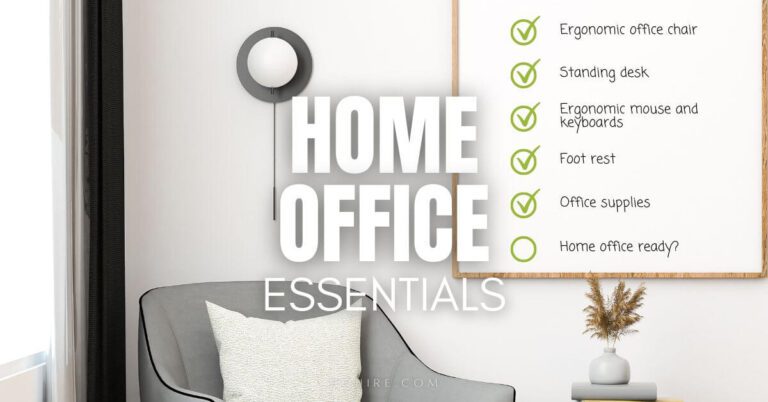Job interviews can be nerve-wracking. The question “What are your greatest strengths?” often comes up. It’s a chance to show why you’re the best fit for the job. Knowing how to answer this question can set you apart from other candidates.
Your response should highlight skills that match the job requirements and company culture.

Preparing for this question ahead of time and think about your top qualities and how they relate to the job. Be ready with specific examples that show your strengths in action. This will make you stand out to the interviewer.
Key Takeaways
- Prepare your answer in advance to showcase relevant skills
- Match your strengths to the job requirements and company culture
- Use specific examples to illustrate your strengths in action
Why Do Employers Ask “What Are Your Greatest Strengths?” During an Interview
Employers ask this question to learn about your skills and qualities. They’re looking for skills that match what they need and they want to know what makes you stand out from other candidates. And most of all, they want to see if you’re a good fit for the job.
This question also shows how well you know yourself.
- Can you talk about your abilities clearly?
- Are you confident in what you bring to the table?
Employers like to hear specific examples. When you share your strengths, they can picture how you’ll use them in the role.
Here are some key reasons employers ask this question:
- To see if your strengths match the job requirements
- To gauge your self-awareness and confidence
- To understand how you might contribute to their team
- To compare your skills with other candidates
Your answer helps them decide if you’re the right person for the job. It’s your chance to highlight your best qualities and show why you’re a great fit.
During an interview, they’re looking for someone who can do the job well. Your strengths should show them you’re that person.
Common Variations of “What Are Your Greatest Strengths?”

Interviewers often ask about your strengths in different ways. Being ready for these variations will help you shine. Here are some common alternatives:
- What would your colleagues say are your best qualities?
- Tell me about a time you excelled at work.
- What makes you stand out from other candidates?
- How would your boss describe you?
These questions aim to uncover your unique talents. Think about times you’ve received praise or achieved great results. Use these examples to highlight your strengths.
Prepare stories that show your skills in action. This approach will make your answers more engaging and memorable.
Be honest and specific. Focus on qualities that match the job requirements. Your unique blend of strengths sets you apart from other candidates.
Practice your responses to feel more comfortable. You’ve got this! Your strengths are what make you valuable to employers.
Guide on How to Answer “What Are Your Greatest Strengths?”

Answering this common interview question well can set you apart from other candidates. Follow these steps to showcase your best qualities with confidence and clarity.
Step 1: List Down Your Top Skills and Qualities
Start by making a list of your top skills and qualities. Think about what you’re good at and what others praise you for. Include both hard and soft skills. Hard skills are things like coding or speaking a foreign language. Soft skills are traits like teamwork or problem-solving.
Review the job description carefully. Look for key skills and qualities the employer wants. Circle the ones that match your strengths.
Pick 3-5 of your best strengths that fit the job. These will be your focus for the interview.
Step 2: Think of an Specific Example
For each strength, think of a specific example that shows it in action. Use the STAR method:
- Situation: Describe the context
- Task: Explain what you needed to do
- Action: Detail the steps you took
- Result: Share the positive outcome
Keep your examples short and focused. Practice telling them in a clear, engaging way.
Step 3: Connect Your Strength to Your Job Role
Connect your strengths to the job you’re applying for. Show how each quality will help you excel in the role. For example, if you’re great at organizing, explain how that will help you manage projects efficiently.
Be specific about how your strengths will benefit the company. Use details from the job description to make these connections clear.
Avoid generic answers. Tailor your response to this particular job and company.
Step 4: Be Humble But Confident
Be honest and humble when discussing your strengths. It’s okay to be proud of your skills, but avoid sounding boastful. Use phrases like “I’ve been told that…” or “I’ve found that I’m good at…” to soften your statements.
Back up your claims with evidence. Share numbers, awards, or feedback that prove your strengths. This adds credibility to your answer.
Be ready to discuss how you’re working to improve your strengths further. This shows self-awareness and a growth mindset.
Step 5: Practice Your Answers
Practice your answer out loud. Time yourself to keep it under 2 minutes. Focus on sounding natural and confident, not rehearsed.
Ask a friend or family member to listen and give feedback. They can help you refine your response and delivery.
Be ready to adapt your answer during the interview. The interviewer might ask follow-up questions or want more details about a specific strength.
Remember to maintain good eye contact and positive body language when answering. Your non-verbal cues are just as important as your words.
Best Example Answers to “What Are Your Greatest Strengths?”

Crafting a strong response to this common interview question can help you stand out. The key is to highlight your most relevant skills and experiences while tying them to the job requirements. Here are some effective examples for different career stages and situations.
Example Answer for a Recent Graduate
“My greatest strengths are my adaptability and eagerness to learn. During my internship at XYZ Company, I quickly mastered new software and took on additional projects. I’m excited to bring this flexibility to your team.
I also excel at teamwork. As captain of my college debate team, I motivated members and led us to the state finals. This experience taught me how to collaborate effectively and inspire others.
Lastly, I have strong analytical skills. My senior thesis on market trends received top honors. I’m confident these abilities will help me contribute to your company’s growth strategies.”
Example Answer for an Experienced Candidate
“One of my key strengths is my ability to streamline processes. At my current job, I redesigned our project management system, cutting delivery times by 20%.
I’m also skilled at building client relationships. I’ve maintained a 95% client retention rate over the past five years. This has led to several long-term contracts for my company.
Another strength is my problem-solving ability. I often lead brainstorming sessions to tackle complex issues. This has resulted in innovative solutions that saved my department $100,000 annually.”
Example Answer for Applying for a Leadership Position
“My greatest strength is my ability to inspire and motivate teams. In my current role, I’ve mentored five employees who have since been promoted.
I’m also skilled at strategic planning. I spearheaded a five-year growth strategy that increased our market share by 15%. This required careful analysis and collaboration across departments.
Additionally, I excel at crisis management. When our main supplier went bankrupt, I quickly found alternatives and prevented any disruption to our operations. This saved the company millions in potential losses.”
Example Answer for an Industry Change
“My top strength is my ability to learn quickly. In my previous role, I mastered complex financial software in just two weeks. I’m confident I can apply this skill to learn your industry’s specific tools and practices.
I’m also highly adaptable. I’ve successfully led projects in marketing, sales, and customer service. This versatility allows me to understand different aspects of a business and contribute in various ways.
Lastly, I have excellent communication skills. I can explain complex concepts in simple terms, which I believe will be valuable when working with diverse teams in your industry.”
Example Answer for a Career Change
“My greatest strength is my transferable skill set. As a teacher, I developed strong presentation and public speaking abilities. These skills will be valuable in client-facing roles in your company.
I’m also highly organized. I managed multiple classes and extracurricular activities simultaneously. This experience will help me juggle various projects and deadlines in this new field.
Lastly, I’m a quick learner. I’ve already completed several online courses in your industry to prepare for this career change. I’m excited to continue growing and contributing to your team.”
Join over 11,000+ achievers who are committed to achieving their career goals!






